Chahtong working at a tea garden in Tizit during this lockdown.
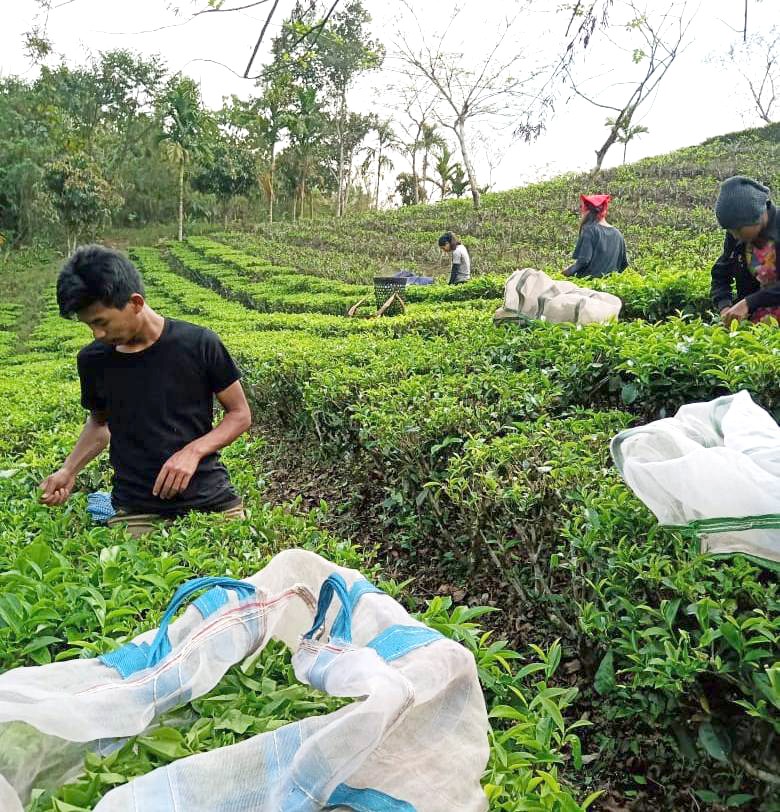
The affirmative emergence of Deaf Community in Nagaland
Morung Express News
Kohima | August 5
A recent Facebook page of the Deaf Community in Nagaland set up a few weeks ago is helping share their stories in Nagaland, breaking boundaries and building awareness of the deaf culture, the community and its members.
While the main objective of the page is to promote the works and skills of the Deaf community members, the page has also helped enlighten the rest about the community: that they also go through the same struggle and progress as any other citizen but with a unique difference.
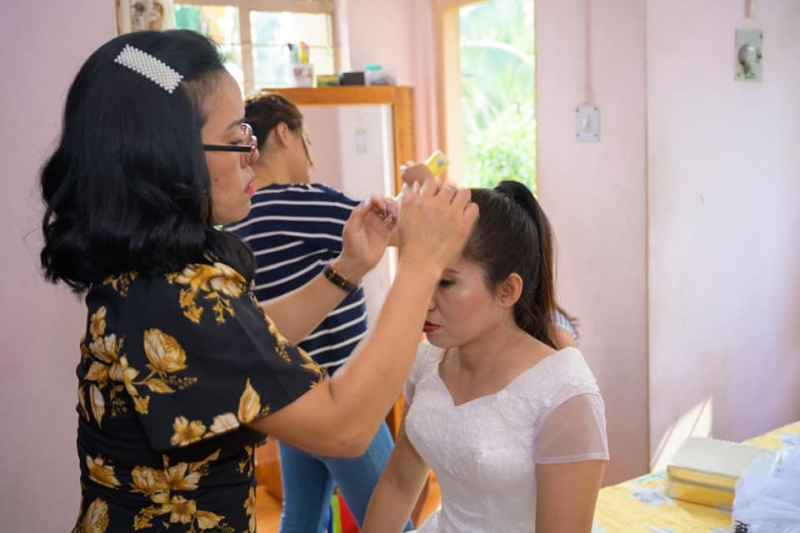 Kharemi is a very talented beautician. Her services include hair cut, hair coloring, hair straightening, threading, facials, manicure and pedicure. She offers home service around 4th mile, Dimapur.
Kharemi is a very talented beautician. Her services include hair cut, hair coloring, hair straightening, threading, facials, manicure and pedicure. She offers home service around 4th mile, Dimapur.
“As with everyone, the COVID-19 situation has taken a toll on the members of the deaf community as well. Some were left without jobs, and many struggled to earn a living. We started this page to create awareness about what our members are doing and to promote their products,” said the group administrators.
The page shares several inspiring stories: a deaf couple working in a noodle manufacturing unit, a hearing impaired baker, a youth skilled in weaving baskets and repairing electronic gadgets, another deaf couple earning their livelihoods by weaving moras, hearing impaired youth working as beauticians, wedding planners, and several in the government's service with equal capacity like any other.
 Lanutula is highly skilled in making baskets and sewing clothes. She is currently based in Naharbari, Dimapur.
Lanutula is highly skilled in making baskets and sewing clothes. She is currently based in Naharbari, Dimapur.
“The stories in the page show that we do not take our deafness as an excuse to sit and do nothing. We aspire to be contributing members of our families and the society. The stories show that we are not a burden to our families, and that we can be financially independent,” stated the administrators.
The page also shares simple but meaningful activities of deaf students helping in household chores, working part time, and learning new skills all the while undertaking online classes during the pandemic. Besides displaying their skills, creativity and artworks, students also share their hopes and ambitions for the future.
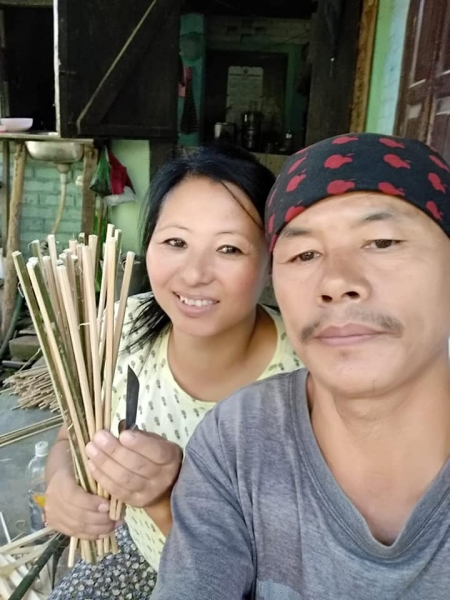
Atoshe and his wife, the first deaf couple to be married in Nagaland are using this lockdown time to make moras. They are based in 4th Mile, Dimapur.
“For the stories about the younger members, we want to create awareness about their schooling, what they do to contribute to their families, and to share their dreams for the future,” the administrators stated.
In the absence of better awareness, the deaf community in Nagaland had a humble beginning over 30 years ago. It began at a time where many considered impairments and disabilities as a “curse or a punishment from God for the sins of our families.”
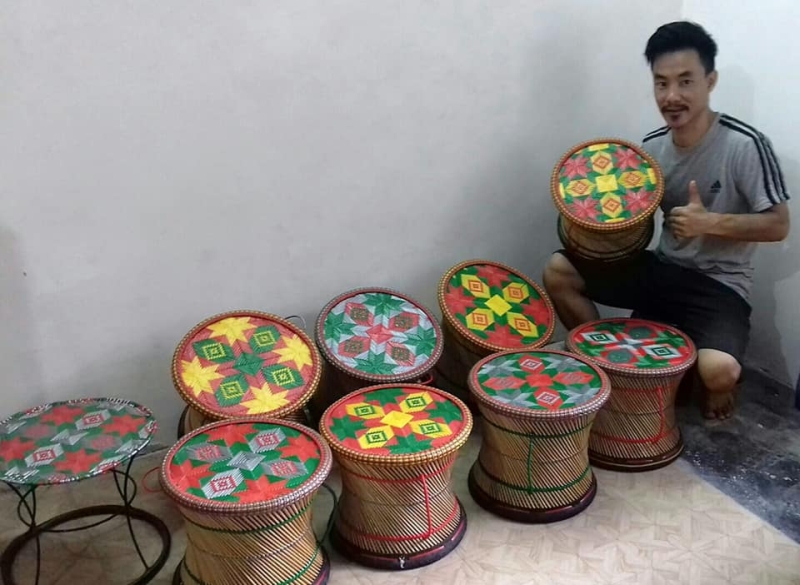 Peter is making moras during this lock down in Dimapur. He is based in Rilan Village, Dimapur.
Peter is making moras during this lock down in Dimapur. He is based in Rilan Village, Dimapur.
“Many thought that we could not be educated and that we would always be a burden to our families and the society. But from 1987, with the establishment of Deaf Biblical Ministry, education was opened up to us, and we finally got a language to call our own. The Deaf community has grown since then, and now we are spread all over Nagaland, covering every district. We all use American Sign Language, which is our mother tongue,” states the Community.
A major struggle for the Deaf Community in Nagaland like many others is the lack of employment opportunities, not just in the government sector, but in private sector as well. The community also struggle with the lack of a common nomenclature in their Disability certificates and IDs.
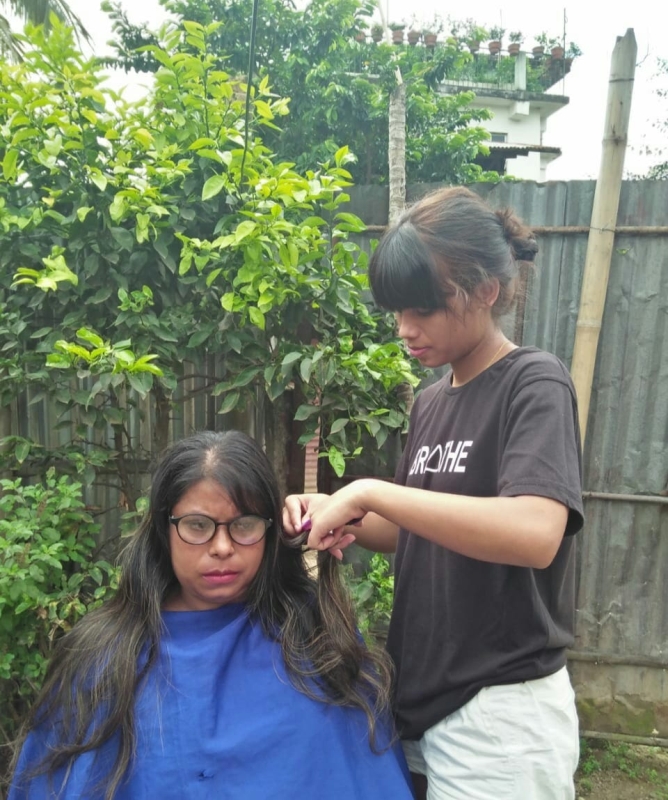
Priscilla is a student from Dimapur. She is inspired by her mother to become a beautician and hairstylist.
“Many of us have “deaf and dumb”, “deaf and mute”, “mutism” etc written in our certificates and IDs. All these terms are offensive to us. “Deaf” or “Hearing loss/impairment” should be the correct term used,” states the community urging the concerned department to set up the correct and uniform term to be used in all districts in the State.
With sign language at the heart of the community, another challenge is the acceptance of their mother-tongue, the American Sign Language (ASL) which is the primary language for the Deaf in Nagaland. “Though it is our preferred language which we have been using for over 30 years, it is not getting its due recognition. Rather, all official matters are being interpreted in Indian Sign Language (ISL), which a majority of us do not understand or use. It is our hope that the State will use ASL for all official matters in the future,” states the group.
Despite the challenges, there is also a growing awareness about the Deaf in Naga society. “We are no longer considered to be curses. Rather, many people have said that we are a blessing. It has taken many years to come to this.
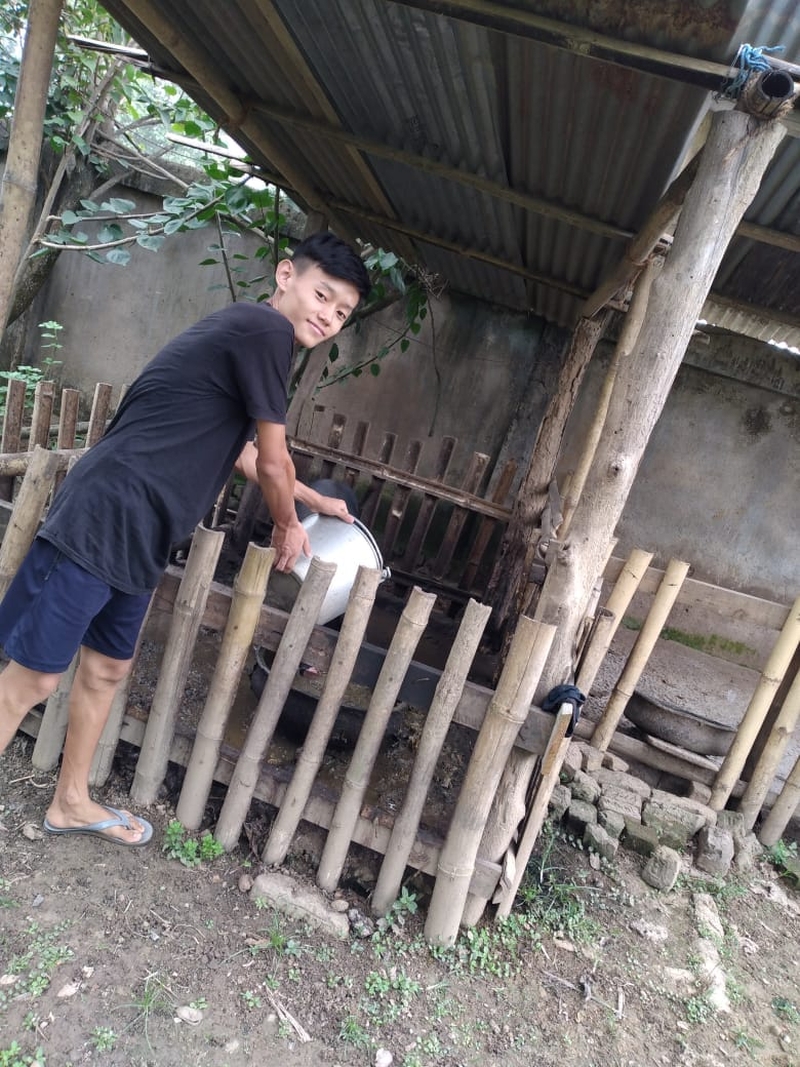 Tekhe is from Phek. He has been in Dimapur with his relatives since the lockdown started.
Tekhe is from Phek. He has been in Dimapur with his relatives since the lockdown started.
Though there are not enough employment opportunities, it is still better than what it used to be,” remarks the group.
This page is run together by a few members of the Deaf Community name Meren Pongen, Atola and Maong Longkumer.
Within a few days time, the page has received overwhelming response where members of the Deaf community have received offers as well as orders for their products. “We are so grateful to everyone for their support and love, and we hope that we will be able to reach out to more people through our page,” expresses the group.
(Photos Courtesy: Deaf Community of Nagaland@Facebook)


